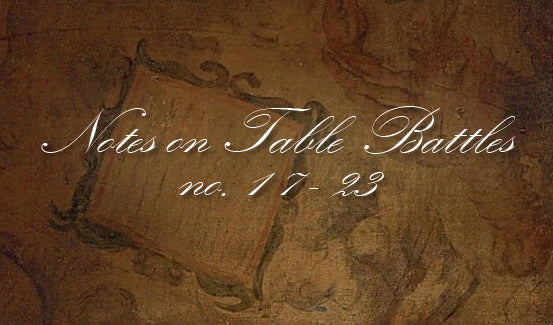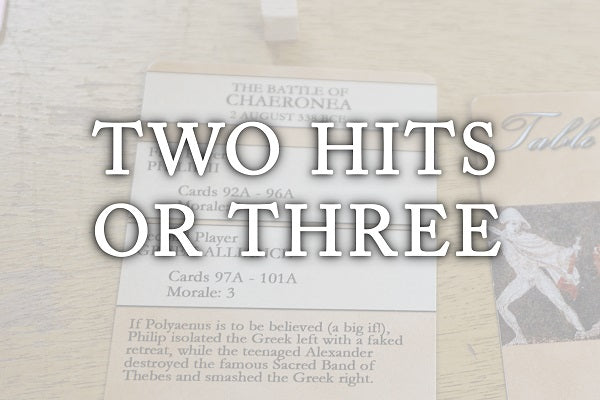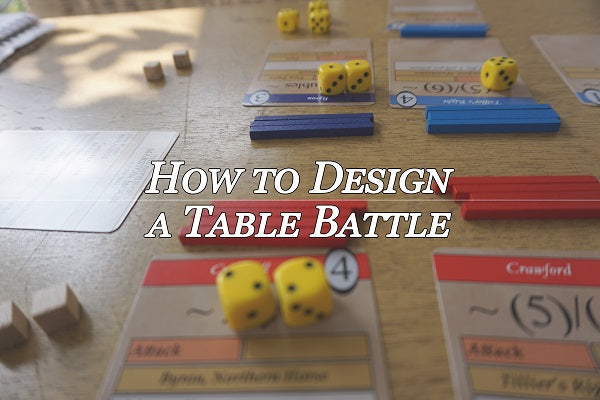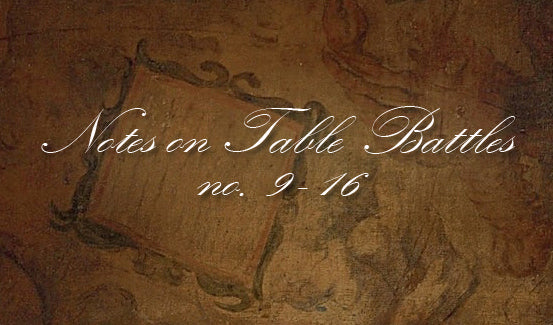Hollandazed: Thoughts, Ideas, and Miscellany — Table Battles
NOTES ON TABLE BATTLES: AGE OF ALEXANDER no. 17-23 (by Tom Russell)

17. Chaeronea (2 August 338 BCE) When I translate a given engagement into the peculiar language of Table Battles, a lot of my time is spent on things that a lot of players won't really notice. What die results a card can accept, whether or not it's limited to one die per turn, how cards are divided into wings and how often die results are duplicated within a wing and within an army, how the cards interact with one another: it's there, and it's what makes the thing work, but it doesn't necessarily call a lot of attention to itself....
TWO HITS OR THREE (by Tom Russell)

Weeks and months after I've finished development on a game, we get the proof from our printer and I put it on the table again. It's often the first time I've played it since the end of development. This is important for proofing purposes. You often hear about folks who are too close to a thing, too familiar with it, and they're unable to see it clearly. This little bit of distance helps us to see the thing with fresh eyes and to catch mistakes before we authorize production. But more than that, the time away from the game allows...
HOW TO DESIGN A TABLE BATTLE (by Amabel Holland)

In mid-January, a fellow named Mark popped up in a Table Battles thread on BGG and asked, Is there a place online where the design process behind these games is exposed? I'd love to get an insight into how you approached assigning unit strengths, dice and actions, as they really dictate the game play. And now, a little later in January, being in need of a blogpost for the first Friday in February, here I am endeavoring to explain how I go about taking a battle and translating it to the very particular and peculiar language of Table Battles. It...
NOTES ON TABLE BATTLES: WARS OF THE ROSES no. 9 - 16 (by Tom Russell)

SOME VERY QUICK THOUGHTS ON FORCED JUMPS (by Tom Russell)

When it comes to traditional abstract games, Chess is arguably the King (and Queen, and Bishop, and Rook). Only Go rivals it for popularity and fanaticism. Backgammon is older than both of them, and I actually find it more dynamic than Chess, but it hardly has the same following or the same kind of serious attention afforded to it. Only hardcore abstract enthusiasts have time for oddities like Nine Men's Morris or Fox and Geese, and even children get bored with Tic-Tac-Toe pretty rapidly. And then there's Draughts (or Checkers). Draughts gets a bad rap. At least in the...
